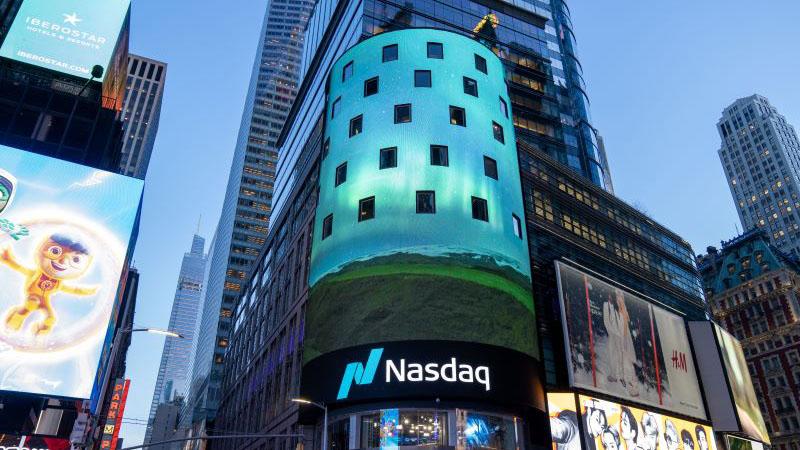Table of Contents
Nasdaq (short for National Association of Securities Dealers Automated Quotations) is an American stock exchange and one of the largest and most influential in the world. It was the first electronic exchange allowing investors to trade securities on a computerized, speedy, and transparent system.
One of the leading stock exchanges worldwide is the National Association of Securities Dealers Automated Quotations, or Nasdaq for short. Several large tech businesses, including Apple, Microsoft, and Amazon, are listed on it, giving it a reputation for being tech-heavy.
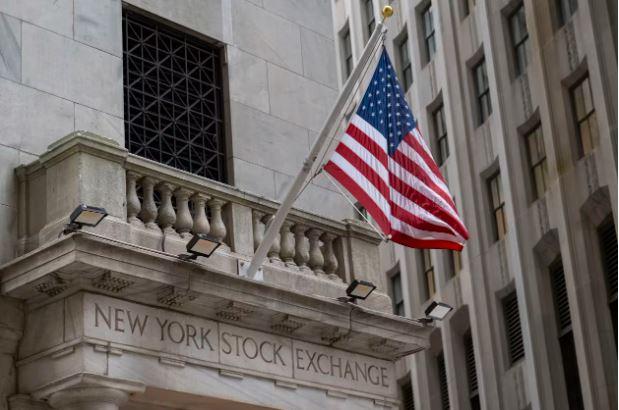
How many companies are listed on Nasdaq
One of the biggest stock exchanges in the US is the Nasdaq. There are almost 5,000 listed local and international businesses, with a significant emphasis on technology. The exchange was the world’s first automated exchange when it began for functioning in 1971. One of the most examined stock market statistics in the world, the Nasdaq Composite Index is made up of over 2,500 listed businesses and is regarded as an indicator of the US and world economies.It was the first electronic stock exchange in history; it had no trading floors and was entirely automated.
It introduced openness and assisted in the abolition of the antiquated manual trade method.
1980s: The Start of the Tech Boom
Tech firms like Microsoft (1986) and Apple (1980) went public on the Nasdaq.
It began to establish itself as the preferred exchange for creative and rapidly expanding businesses.
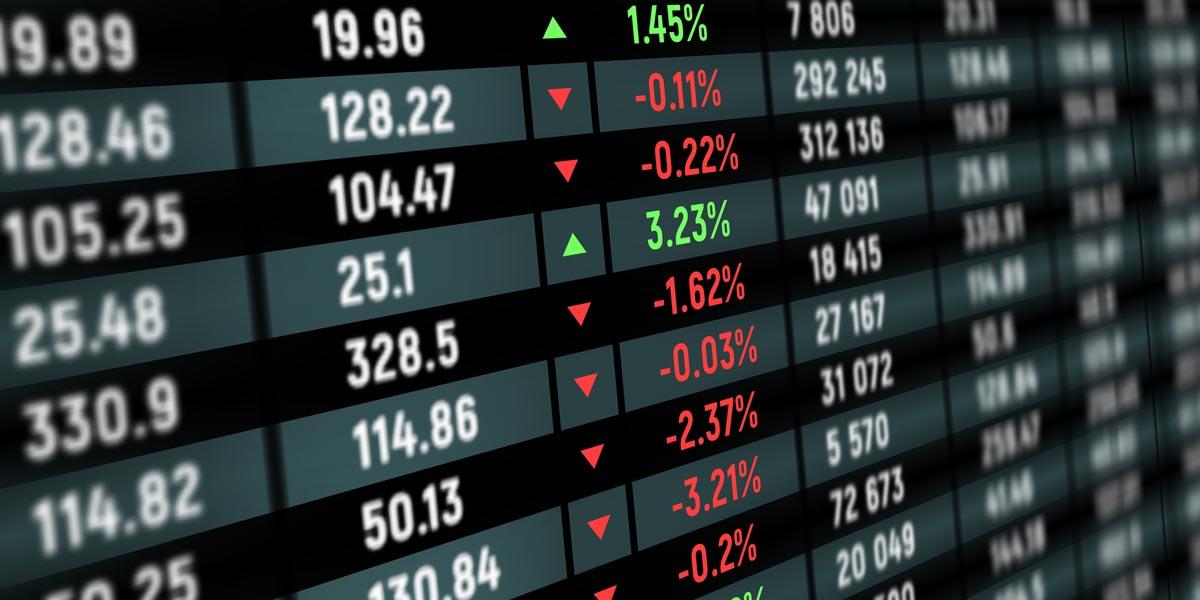
| # | Name | M. Cap |
| 1 | Apple 1AAPL | $2.860 T |
| 2 | Microsoft 2MSFT | $2.834 T |
| 3 | NVIDIA 3NVDA | $2.624 T |
| 4 | Amazon 4AMZN | $1.923 T |
Structure & Operation
Completely Online Trading:
- The Nasdaq doesn’t possess a physical trading floor as the NYSE accomplishes. Trading takes place on an electronic, decentralised market via a network of computers. An automated buy/sell order system is used to match trades.
- Market Makers To supply liquidity, Nasdaq turns to Market Makers rather than floor traders. These are companies or people that: Purchase and sell securities on a regular basis. Aid in lowering volatility and guaranteeing seamless trading
- System for Matching Orders Buyers and suppliers are matched via the automated system according to: The best deal Time priority (the order that gets assigned first must be carried out first)
- Hours of trading 4:00 AM to 9:30 AM (ET) is pre-market time.
- Hours of operation: 9:30 AM to 4:00 PM (ET) 4:00 PM to 8:00 PM (ET) is the after hours.
Regulation The U.S. Securities and Exchange Commission (SEC) is in charge of FINRA (Financial Industry Regulatory Authority) regulations also allow for self-regulation.
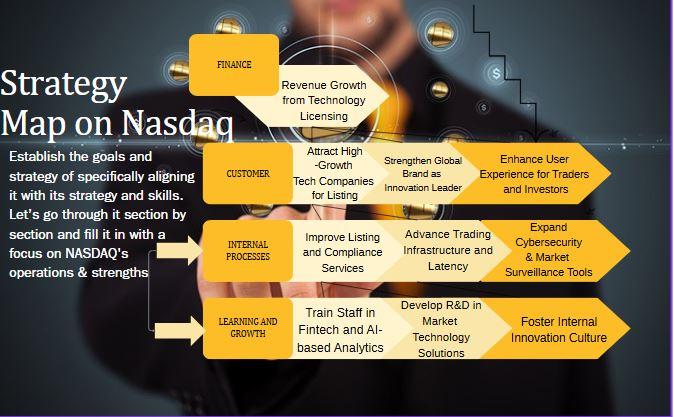
Nasdaq Listing Services:
Other Functions: Businesses pay to be listed on Nasdaq. Market Technology: Nasdaq offers trading platforms to other global stock exchanges. Market Data: Provides platforms, institutions, and investors with real-time data.
- It functions as both:
- A stock exchange where public companies list shares (e.g., Apple, Microsoft, Amazon)
Apple:
-
- A technology company that provides trading, clearing, exchange technology, market data, and financial services

Key Ticker:
- Nasdaq Composite Index (IXIC): An index of 3,000+ stocks listed on Nasdaq
- The Nasdaq Composite is frequently used to measure how well the computing sector is doing.
- It is a crucial economic indicators of how investors feel about the digital, growth, and innovation sectors.
Investors and analysts use it to:
- Monitor technical performance
- Identify market trends
- Examine the performance for particular stocks.
- Nasdaq-100 (NDX): Represents the 100 largest non-financial companies listed
As businesses like Zoom, Apple, and NVIDIA soared during the 2020–2021 tech rally, the Nasdaq-100 enjoyed enormous gains.
Started on January 31, 1985
| NDX is the ticker symbol. | The number of the top 100 non-financial firms |
| Modified market | cap-weighted weighting |
| Invesco QQQ Trust | well-known ETF, is tracking it. |
Technology in the Primary Sector (dominantly tech)
The 100 biggest non-financial businesses listed on the Nasdaq Stock Exchange comprise the Nasdaq-100 stock market index.
The Nasdaq-100 is far more selective than the larger Nasdaq Composite, which consists of more than 2,500 firms.
Banks and other financial organisations are not included, but it does include consumer services, biotech, industrial, and IT heavyweights.

Major Features
| Feature | Description |
|---|---|
| Electronic Trading | Entirely digital platform (no trading floor) |
| High-Tech Focus | Known for tech-heavy listings |
| Global Reach | Operates over 25 markets globally |
| Market Tiers | Three tiers: Global Select Market, Global Market, Capital Market |
| Innovative Services | Offers trading technology, data analytics, and software for other exchanges |
Companies Listed on Nasdaq
- Technology: Apple, Microsoft, Amazon, Google (Alphabet), Meta (Facebook)
- Biotech/Healthcare: Moderna, Amgen, Biogen
- Consumer Services: Netflix, eBay, Booking Holdings
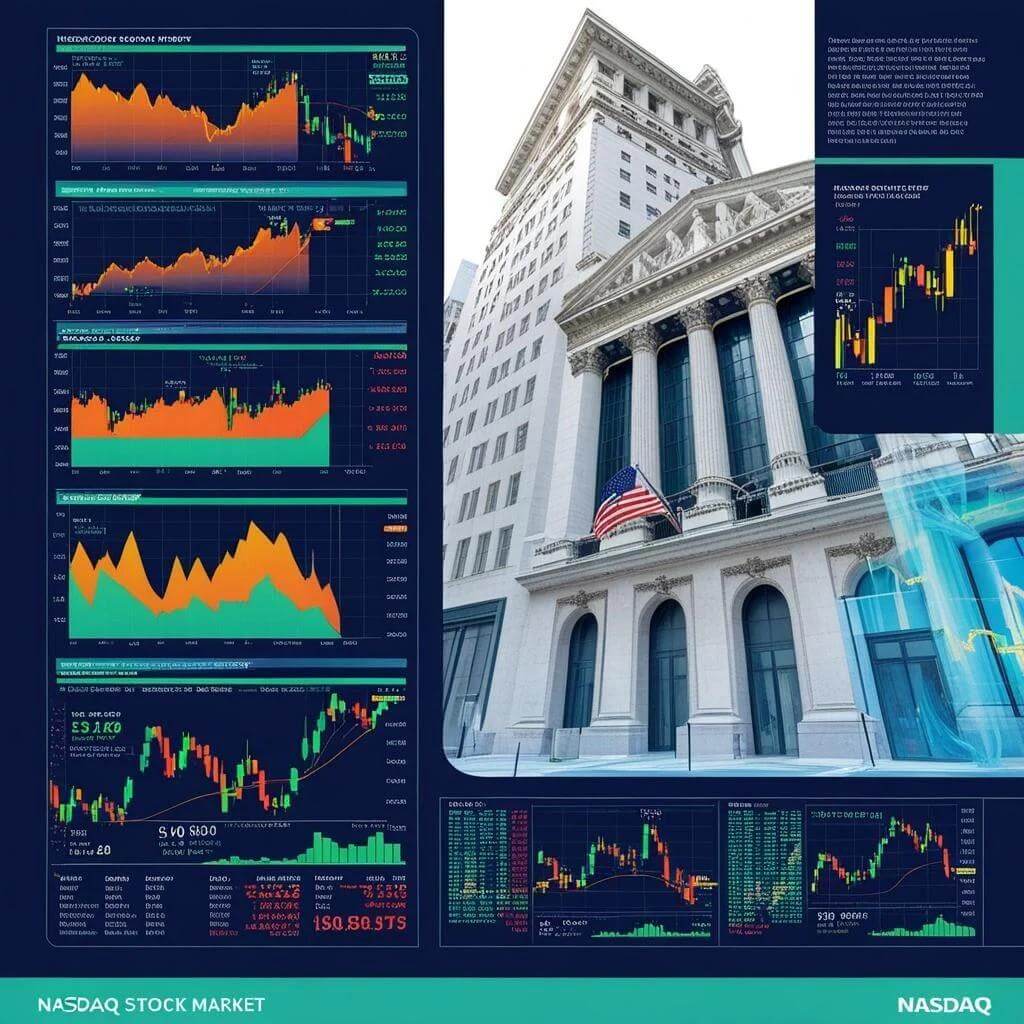
Nasdaq vs Competitors
Nasdaq is one of the two major US stock exchanges, but it faces both domestic and international competition.
Primary Competitor:
New York Stock Exchange (NYSE)
| Competitor #1 | NYSE (focus on traditional, blue-chip companies) |
| Global Impact | Provides tech to other exchanges, strong global presence |
- Founded: 1792
- Operator: Intercontinental Exchange (ICE)
- Market Cap: Larger than Nasdaq
- Focus: Blue-chip companies, more traditional industries
- Trading: Combines floor and electronic trading
| Competitor #1 | NYSE (focus on traditional, blue-chip companies) |
| Global Impact | Provides tech to other exchanges, strong global presence |
| Feature | Nasdaq | NYSE |
|---|---|---|
| Focus | Tech, growth companies | Established, blue-chip firms |
| Trading Model | Fully electronic | Hybrid (floor + electronic) |
| Listed Giants | Apple, Microsoft, Amazon | Coca-Cola, JPMorgan, ExxonMobil |
Other Global Competitors
| Exchange | Country | Description |
|---|---|---|
| London Stock Exchange (LSE) | United Kingdom | One of the oldest exchanges; serves European markets |
| Shanghai Stock Exchange (SSE) | China | Fast-growing, state-influenced, with large Chinese firms |
| Euronext | Pan-Europe | Includes France, Netherlands, Belgium, Portugal, etc. |
| Tokyo Stock Exchange (TSE) | Japan | Home to many major Japanese multinationals like Toyota |
| Hong Kong Stock Exchange (HKEX) | Hong Kong | Key gateway to Chinese investments |
Nasdaq’s Technological Edge
- Pioneered electronic trading
- Offers cloud-based market data
- Provides AI-powered compliance and market surveillance tools
- Powers other global exchanges through its Nasdaq Market Technology
Nasdaq Today
- Market Cap: Over $20 trillion+
- Number of Listed Companies: 3,000+
- Known For: Innovation, growth companies, and tech dominance
Summary
| Nasdaq Highlights | |
|---|---|
| Type | Electronic stock exchange |
| Key Strength | Tech and growth stocks |
| Founded | 1971 |
Prospectives (Future Outlook & Opportunities)
For Companies:
- Growth Potential: Being listed gives a company more growth leverage through easier access to capital.
- M&A Opportunities: Nasdaq-listed companies often become attractive for mergers and acquisitions.
- Global Expansion: The visibility can open doors to new international markets.
For Investors:
- Innovative Portfolio: Exposure to tech giants (Apple, Microsoft, Amazon) and disruptive startups.
- High Returns: Historically, tech and growth stocks have shown strong long-term returns.
- Access to Trends: Nasdaq reflects current and emerging industry trends (AI, biotech, fintech, etc.)
Category
Access to Growth Stocks
Nasdaq hosts the biggest growth companies in the world, offering strong long-term potential.
High Liquidity
- With massive daily trading volumes, Nasdaq stocks tend to have tight spreads and easy entry/exit.
Tech & Innovation Exposure
- Investors looking for exposure to cutting-edge industries (AI, cloud computing, biotech, fintech) favor Nasdaq.
Popular ETFs & Indexes
- ETFs like QQQ (Nasdaq-100) are widely traded and give investors easy access to top Nasdaq companies.
Transparency & Speed
- The electronic platform offers real-time price data and fast execution—key for both retail and institutional traders.

